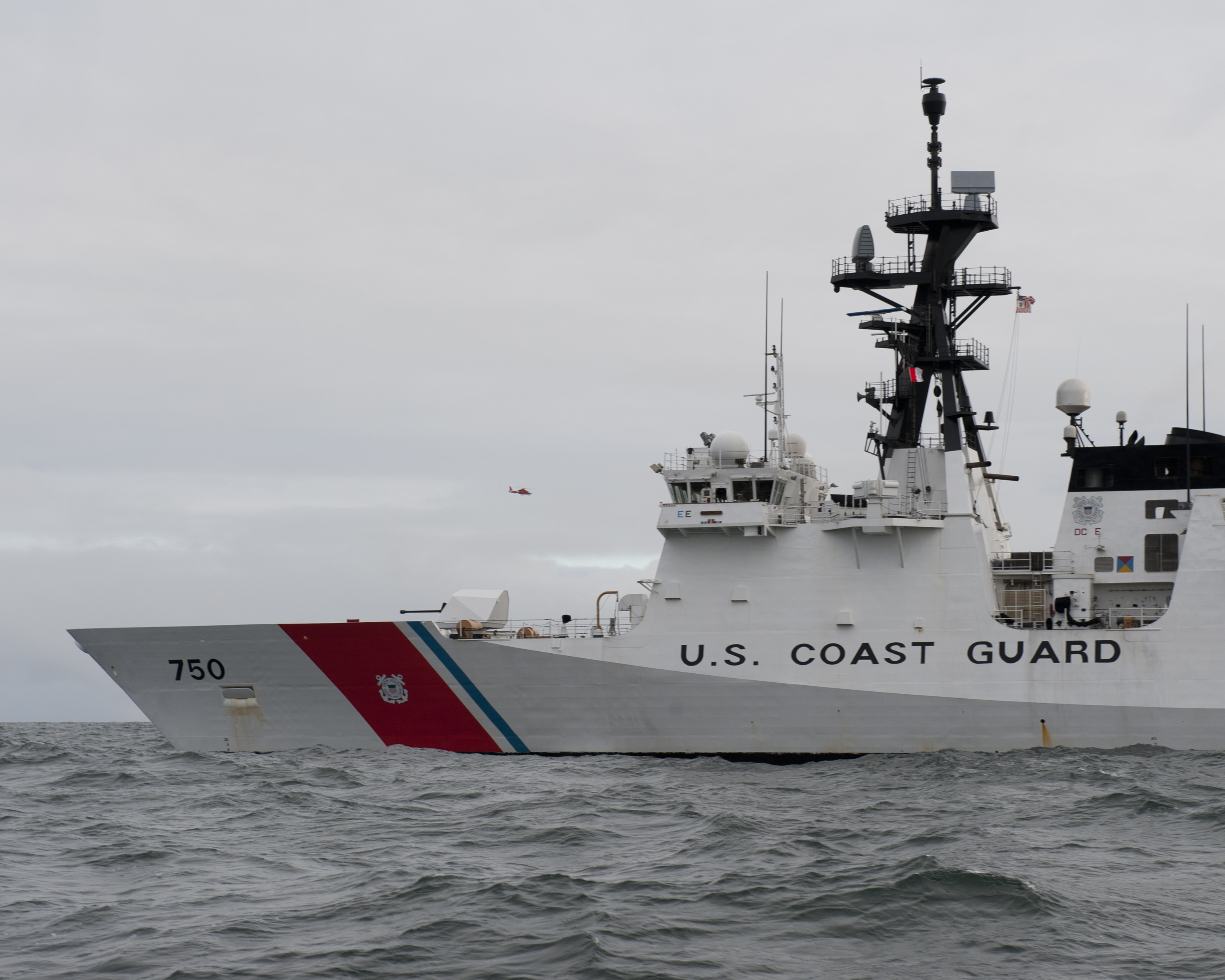Amid increasingly aggressive geopolitical rhetoric, the US Coast Guard seeks peaceful cooperation
The Coast Guard wants to address growing security concerns in the Arctic while at the same time keeping the region peaceful and collaborative.

The Trump administration may have recently amplified its rhetoric around geopolitics and national security concerns in the Arctic, but the U.S. Coast Guard, the federal agency with the biggest surface presence there, still seeks to keep the region peaceful and cooperative.
Earlier this week, in a speech on the eve of the Arctic Council’s 2019 ministerial meeting in Finland, U.S. Secretary of State Mike Pompeo characterized both Russian and Chinese behavior in the Arctic as “aggressive,” cautioning that the two nations need to be watched closely.
Two U.S. agencies have also highlighted growing international interest in the region, and potential accompanying risks, in their recent Arctic strategies.
The U.S. Navy characterized the region as “low risk of conflict,” but acknowledged the “re-emergence of long-term, strategic competition between nations” and the need to “safeguard” U.S. interests in the Arctic.
The U.S. Coast Guard’s Arctic strategy also strongly emphasized the geostrategic importance of the Arctic — with cursory mentions of the agency’s other missions, such as search and rescue and oil spill response.
But Coast Guard Commandant Adm. Karl Schultz, speaking with ArcticToday on Wednesday, suggested that day-to-day activities, such as law enforcement and search-and-rescue, remain Coast Guard priorities.
“When you’re talking about great power competition — that’s not a Coast Guard mission, that is sort of a backdrop of geostrategic political reality,” he said. “How do you conduct those missions against that backdrop?”
Sec. Pompeo’s remarks heightened the level of discussion around geopolitical concerns in the region, Schultz said. The top U.S. diplomat’s comments about politics and national security “ups the game” in the Arctic, Schultz said, borrowing a phrase from former Secretary of Defense Jim Mattis. And the increased focus on security in the region means the Coast Guard will continue to propose investments in icebreakers and other infrastructure in its budget requests.
“If we’re forced to compete,” Schultz said, “you’ve got to adjust your fires to the realities around you” — particularly in response to how others choose to operate in the region, as well.
However, Schultz emphasized the importance of collaboration, cooperation and transparency in the region — particularly with Canada and others. He pointed to current international collaboration in the Pacific with France, New Zealand and Australia. “What’s that same kind of model in the Arctic?” he asked.
He highlighted U.S. involvement in the Arctic Coast Guard Forum, the International Maritime Organization, and the Arctic Council.
“I think all those collaborative bodies are the right forums to try to keep this… as a cooperative space,” he said. “I think we are seen as a leader there and I would hope our presence would be kind of a tempering forced to others.”
The Coast Guard is unique among U.S. military agencies because it also has other missions.
Rebecca Pincus, an assistant professor at the U.S. Naval War College, highlighted this unusual blend of capabilities in a recent Wilson Center briefing.
“People that I’ve spoken with are happy to see the Coast Guard taking a leading role, because it’s less escalatory to have the Coast Guard out in front than the Navy, right?” she said. “White hulls send a different message than gray hulls.”
The partnerships the Coast Guard is able to maintain with other Arctic nations, including Russia, are also key, Pincus said — particularly after 2014, when the Navy stopped collaborating with its Russian counterparts.
“The Coast Guard has this unique role to play,” she said. “It’s still got active, ongoing interaction with Russian counterparts, as the strategic outlook notes, and that’s important.”
Continuing to work with other nations and communities in the Arctic will be important for keeping the region safe, secure and cooperative, she said.
“The emphasis on partnerships and a really diverse definition of security, I think, is great,” she said. “Because it shows us a way forward to increase our security in the Arctic region without militarizing it.”
Along with the Coast Guard’s focus on the changing environment and geopolitics of the region, the strategy document was also an appeal for more resources. The Coast Guard only has two polar-capable icebreakers, one medium and one heavy, and only the medium icebreaker, the research-oriented Healy, operates in the Arctic. The deep-draft port nearest to the Arctic is Dutch Harbor, about 1,000 miles south of the Arctic Circle. And there are serious communications gaps in the vast region.
“The strategic outlook does point to China and Russia as presenting challenges to a stable, peaceful and rules-based Arctic,” said David Balton, former ambassador for oceans and fisheries at the U.S. Department of State, in the Wilson Center briefing.
But, he added, “reasonable people can and do disagree about how serious those challenges really are.”
A skeptic might note that it behooves the Coast Guard to emphasize these challenges now, in the current political environment, to secure more resources for its Arctic operations, he said.
“And I hope the Coast Guard gets the resources it seeks,” he said. “The Coast Guard can contribute to projecting the presence and engagement of our nation in the Arctic, and thus help to demonstrate that the Arctic is a part of the world that matters to us.”
Adm. Schultz told ArcticToday that, despite the changing geopolitics of the region, he hopes the Arctic remains “a peaceful, collaborative space.”
When asked if there was a chance that the current focus on politics and security could overshadow some of the traditional Coast Guard missions, such as search and rescue or oil spill response, he responded, “I would hope not.”